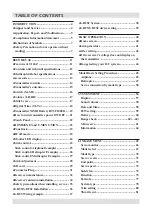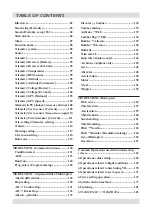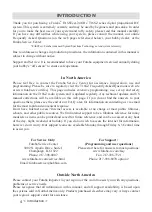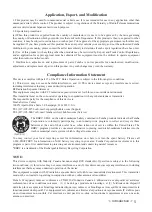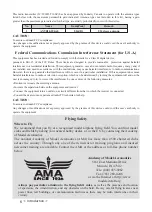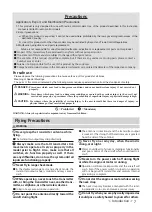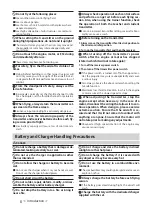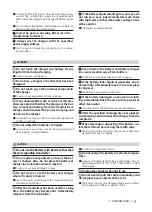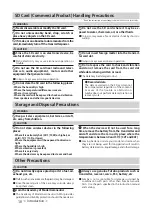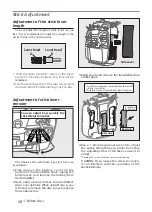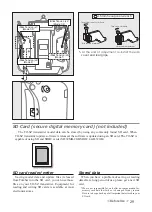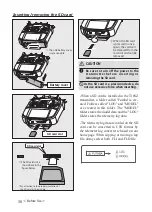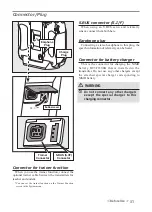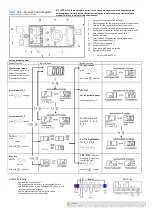
7
< Introduction >
Precautions
Application, Export, and Modification Precautions.
1. This product is only designed for use with radio control models. Use of the product described in this instruction
manual is limited to radio control models.
2. Export precautions:
a) When this product is exported, it cannot be used where prohibited by the laws governing radio waves of the
destination country.
b) Use of this product with other than models may be restricted by Export and Trade Control Regulations.
3. Modification, adjustment, and parts replacement:
Futaba is not responsible for unauthorized modification, adjustment, or replacement of parts on this product.
■ No part of this manual may be reproduced in any form without prior permission.
■ The contents of this manual are subject to change without prior notice.
■ The contents of this manual should be complete, but if there are any unclear or missing parts please contact a
Futaba Service Center.
■ Futaba is not responsible for the use of this product by the customer.
■ Company and product names in this manual are trademarks or registered trademarks of the respective company.
For safe use
Please observe the following precautions to ensure safe use of this product at all times.
Meaning of Special Markings:
The parts of this manual indicated by the following marks require special attention from the standpoint of safety.
DANGER
- Procedures which may lead to dangerous conditions and cause death/serious injury if not carried out
properly.
WARNING
- Procedures which may lead to a dangerous condition or cause death or serious injury to the user if not
carried out properly, or procedures where the probability of superficial injury or physical damage is high.
CAUTION
- Procedures where the possibility of serious injury to the user is small, but there is a danger of injury, or
physical damage, if not carried out properly.
= Prohibited
= Mandatory
WARNING: Always keep electrical components away from small children.
Flying Precautions
WARNING
Never grasp the transmitter antenna while
flying.
■ The transmitter output may drop drastically.
Always make sure that all transmitter stick
movements operate all servos properly in the
model prior to flight. Also, make sure that all
switches, etc. function properly as well. If there
are any difficulties, do not use the system until all
inputs are functioning properly.
Never fly in range check mode.
■ In the dedicated range test range check mode, the
transmitter output range is reduced and may cause a
crash.
While operating, never touch the transmitter
with, or bring the transmitter near, another trans-
mitter, a cellphone, or other wireless devices.
■ Doing so may cause erroneous operation.
Do not point the antenna directly toward the
aircraft during flight.
■ The antenna is directional and the transmitter output
is weakest. (The strength of the radio waves is greatest
from the sides of the antenna.)
Never fly on a rainy day, when the wind is
strong, or at night.
■ Water could lead to failure or improper functionality
and poor control of the aircraft which could lead to a
crash.
Never turn the power switch off during flight
or while the engine or motor is running.
■ Operation will become impossible and the aircraft will
crash. Even if the power switch is turned on, operation
will not begin until transmitter and receiver internal
processing is complete.
Do not start the engine or motor while wearing
the neck strap.
■ The neck strap may become entangled with the rotat-
ing propeller, rotor, etc. and cause a serious injury.
Do not fly when you are physically impaired as
it could pose a safety hazard to yourself or others.


